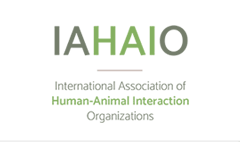Abstract
The One Health model proposes that human and nonhuman animal health be addressed in tandem, considering the well-being of both, and even including the environment. However, in practice One Health initiatives usually focus on animals as disease carriers. This paper is innovative because it extends the application of the One Health model to human and nonhuman animal well-being and mental health. One of the most challenging issues in non-human animal welfare is the management of unwanted, abandoned, and feral animals. Many of these animals will end up in a shelter or a rescue, and whether they leave alive is often a reflection of their behavior in the shelter/rescue. Research reviewed here demonstrates that innovative programs in shelters, such as foster programs or standardized training to enable volunteers to assist shelter animals to engage in behavior modification, increase the likelihood of nonhuman animals leaving a shelter alive. The more safe and expertly guided socialization opportunities these nonhuman animals have, the better their chances are of finding a permanent home. Older adults with a lifetime of experience caring for nonhuman animals are an untapped resource for shelters/rescues. Given the well-established research that documents the positive influence of nonhuman companions on human health and well-being, it is suggested here that recruiting older adults to volunteer and/or foster shelter animals would create better outcomes for both groups. By expanding One Health initiatives to include those that enhance the well-being of both human and nonhuman animals, there is potential for a positive impact on physical, mental, and survival outcomes.
Recommended Citation
Carver, L.F.
(2020)
"One Health: Fostering Hope for Older Adults and Homeless Companion Animals,"
People and Animals: The International Journal of Research and Practice: Vol. 3
:
Iss.
1,
Article 2.
Available at:
https://docs.lib.purdue.edu/paij/vol3/iss1/2


